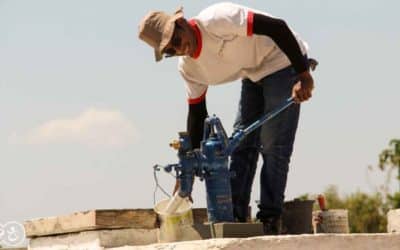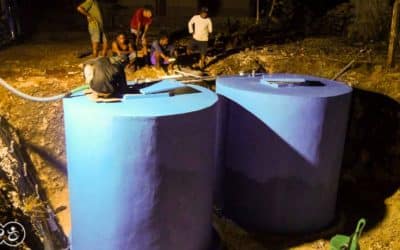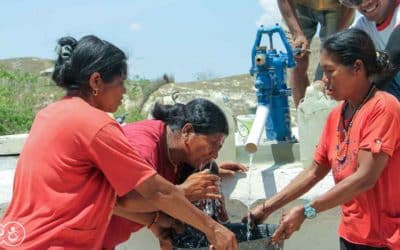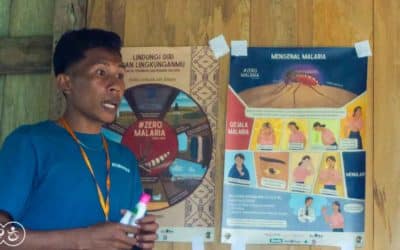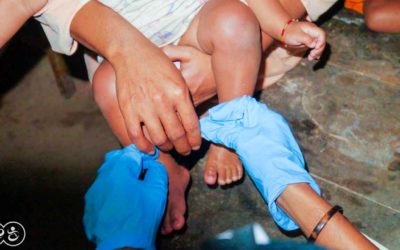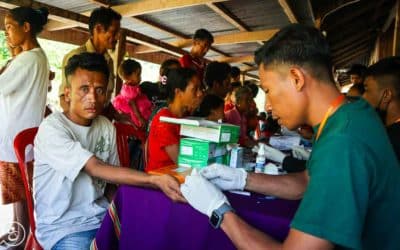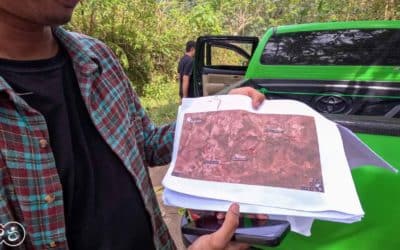In the remote corners of Eastern Indonesia, each kilometer counts. Fair Future’s #TruckOfLife isn’t just a vehicle; it’s a lifeline to communities plagued by diseases like malaria and tuberculosis. With just CHF 0.56 per kilometer, you can be a part of this transformative journey. Your donation brings vital medical care, clean water, and a shot at a healthier future to those who need it most. Join us in making every kilometer a kilometer of hope.
Through the Primary Medical Care program, Kawan Sehat health workers provide treatment for fevers, wounds, and malaria in villages lacking access to doctors. They carry essential medicines, adhere to established medical protocols, and refer emergency cases promptly to prevent delays in care.
Donate
Support Care
Programs
All projects
Quick News
Field updates
Stories
Field stories
Dragon Pumps: Fair Future’s #WaterConnections in Laindatang
The arrival of Dragon pumps in Laindatang, East Sumba, marks a watershed moment in Fair Future’s #WaterConnections project. In collaboration with Kawan Baik and Rotary Australia, we are transforming the health landscape of this isolated village. From reducing the prevalence of infectious diseases to providing the first-ever sanitary installations, discover how clean water is rewriting the community’s story.
Sustainable Water Access in TanaMbanas with #WaterConnections Project
Bringing Clean Water to Tanambanas #WaterConnections
Fair Future’s #WaterConnections project is a beacon of hope in Tanambanas, Sumba, where every drop of water is a treasure. By collecting and filtering rainwater, we’re creating not just reservoirs but sanctuaries of health. Dive into this inspiring story of how innovation and collective effort are changing lives, one drop at a time.
#WaterConnections – Installation of Dragons Pumps in Laindatang
Breaking Malaria’s Grip: Transformative Healthcare Solutions for Eastern Indonesia
In ultra-rural regions of Eastern Indonesia, malaria is more than a disease; it’s a systemic issue impeding community development. Fair Future Foundation’s #ZeroMalaria program tackles this crisis head-on with a unique, comprehensive approach. From preventive education to providing immediate healthcare, we are dedicated to breaking the chain of malaria. Our council members are actively involved on the ground, ensuring effective, sustainable solutions tailored to community needs.
October 23 | Zero Malaria Program – Activity and work report in East Sumba
Zero Malaria: The Stickers That Save Lives in East Sumba
This New “Picture of the Day” highlights much more than a simple sticker; it reveals a crucial component of our ongoing fight against malaria. Within Fair Future’s #ZeroMalaria program, our social and medical teams dedicate their expertise and energy to affixing these stickers to the walls of homes in the villages and regions of East Sumba where we work. These stickers are not just markers but vital indicators in our overall approach to protecting and educating the most vulnerable communities.
In the remote villages of East Sumba, Indonesia, a simple sticker can mean the difference between life and death. As part of Fair Future’s Zero Malaria program, these stickers are affixed to the walls of homes, serving as a visual indicator of our comprehensive approach to malaria control.
In the battle against malaria, we don't overlook any details. From microscopic examinations to stickers on walls, every action is a step towards a malaria-free future. These stickers are not just adhesives; they are badges of education, prevention, and hope.
Family Member Detection: Early diagnosis is crucial in regions like East Sumba, where malaria is rampant. Our teams employ optical microscopic examinations to visualize plasmodia in patients' thick or thin blood smears. We also utilize Rapid Diagnostic Tests for Malaria (TDR).
Indoor Residual Spraying (PID): We conduct Indoor Residual Spraying (PID) in every home across the villages. This involves the regular application of long-lasting chemical insecticides on the inner walls of houses. The insecticide remains effective for several months, killing mosquitoes that come into contact with it.
Larvicides: Regular application of microbial or chemical insecticides to water bodies or reservoirs is another crucial aspect. The goal is to reduce the adult mosquito population by killing the immature aquatic forms, thereby limiting their development into adults.
Bed Nets: The distribution of insecticide-treated bed nets (MII) is essential in our fight against malaria. These nets have proven highly effective in reducing malaria-related deaths and illnesses.
Environmental Surveillance: We also pay close attention to the living conditions in these areas. Factors like inadequate sanitation facilities, unsanitary conditions, stagnant water, and areas where animals like pigs and water buffaloes are kept can significantly contribute to mosquito proliferation.
This is why the sticker takes on such importance. It informs villagers whether a particular home has been treated, whether its inhabitants have undergone screening and whether they have been educated on protecting themselves from the disease.
Thank you very much for your support.
Alex Wettstein – Fair Future Foundation medico-social camp in East Sumba – Rumah Kambera, Lambanapu, 5th of October, 2023.
Support Our Humanitarian Trucks
The Truck of Life and Truck N’Load are lifelines for thousands in isolated areas. With your support, these trucks deliver essential healthcare, clean water systems, and educational supplies where no one else can reach.
The #ZeroMalaria Mission: Testing East Sumba’s Population in Extreme Conditions
Embark on a journey with the Fair Future Foundation’s groundbreaking #ZeroMalaria program, aimed at eradicating malaria in East Sumba, Indonesia. This ambitious initiative seeks to test at least 87% of the local population, even in the most remote and challenging terrains. Discover how our specialized socio-medical teams navigate logistical hurdles, from electricity shortages to extreme weather conditions, to conduct tens of thousands of tests.
A Drop of Hope: Blood Testing for Malaria in East Sumba by Fair Future
Behind the Scenes: Fair Future’s Anti-Malaria Effort in East Sumba
Fair Future Foundation, in collaboration with Kawan Baik and Sumba Volunteer, is taking bold steps to eradicate malaria in one of the world’s most affected regions—East Sumba, Indonesia. This comprehensive program aims to serve tens of thousands of people, focusing on early diagnosis and effective treatment. With more than 10 tons of medical equipment and a dedicated team, we are committed to this cause as a moral obligation. Read on to discover the intricate details of this life-changing initiative.





